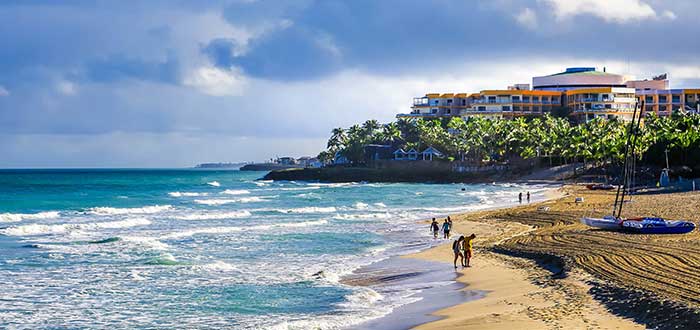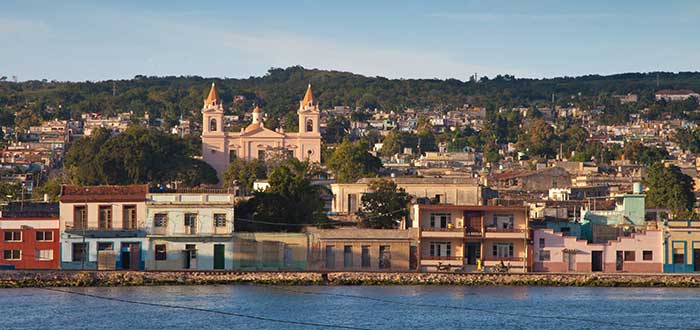(OPINION) LA REFORMA POLÍTICA EN CUBA ES EL CAMINO.
Por Yaxis Cires Dib, Ciudad de Panama.
Apostar por una reforma política no es legitimar al régimen. A nadie se le ocurriría decir que la transición española se hizo para mantener al franquismo.
De las diferentes vías para el cambio en Cuba, la reforma política de la ley a la ley es la que menor costo social tendría y a la vez la que mayor apoyo internacional conseguiría.
Según una encuesta realizada por el Observatorio Cubano de Derechos Humanos el pasado año en la Isla, la mayoría de los consultados dijo querer un cambio. Igualmente la mayoría quiere que sea hacia una democracia y una economía de mercado. Sin embargo, cuando se les preguntó sobre cómo desearía que se produjera, el 42.8% de los que querían cambio optó por un proceso iniciado en las altas esferas, y un 31% mediante una explosión social.
Un matiz a tener en cuenta es que en los últimos meses se observa una agudización del malestar social por el empeoramiento de la situación económica, las crecientes desigualdades y el reforzamiento de las posiciones inmovilistas del Gobierno, que no cambia ni resuelve. Algo que lógicamente podría provocar una bajada de confianza en que la solución provenga del propio régimen.
No obstante, otras opciones distintas a las anteriores, además de tener escaso apoyo popular, parecieran improbables por lo menos a corto y mediano plazo.
Apostar por la reforma política no es legitimar al régimen, como algunos dicen. A nadie se le ocurriría, por ejemplo, decir que la transición española se hizo para mantener al franquismo, a pesar de que fue un proceso de la ley a la ley y que se inició en las propias instituciones franquistas.
Las únicas instituciones que hoy existen en Cuba, a excepción de las iglesias, son las del régimen. Incluso en un hipotético escenario de inestabilidad general, probablemente la solución tendría que dirimirse dentro de las estructuras tardocastristas o contando con ellas.
Uno de los retos es cómo darle sentido a la estrategia de la reforma y sus posibles protagonistas en un panorama en el que no se tiene claro quién ejerce el poder real en Cuba. Y otro es la alta dependencia que tiene esa vía de quienes hoy retienen el poder ya sea formal o efectivo y lo hacen con altos niveles de enajenación y desconsideración.
Por muy decadente que esté el régimen, si no existe una oposición interna más o menos organizada, fuerte presión internacional y a la vez una salida aceptable para todos, el proceso puede ser muy largo y desgastante.
Los principales retos de la oposición son ganar mayor legitimidad social y paralelamente construir una alternativa visible a pesar del ambiente represivo. Pero debe alejarse del “ruido” y las distorsiones que impiden hacer un análisis político sosegado. Cualquier tema, incluso cosas que ocurren en otros países, generan unas pasiones y simplificaciones tremendas.
La meta debe ser conseguir la democracia para Cuba cuanto antes, y que esta sea real.
(OPINION) POLITICAL REFORM IN CUBA IS THE WAY.
By Yaxis Cires Dib, Panama City.
Betting on political reform is not legitimizing the regime. It would not occur to anyone to say that the Spanish transition was made to maintain the Franco regime.
Of the different avenues for change in Cuba, the political reform from law to the law is the one that would have the lowest social cost and at the same time the one that would obtain the greatest international support.
According to a survey conducted by the Cuban Observatory for Human Rights last year on the island, the majority of those consulted said they wanted a change. Likewise, the majority want it to be towards democracy and a market economy. However, when asked about how they would like it to happen, 42.8% of those who wanted change opted for a process started in high places, and 31% through a social explosion.
A nuance to take into account is that in recent months there has been a worsening of social unrest due to the worsening of the economic situation, growing inequalities, and the reinforcement of the government’s immobile positions, which does not change or resolve. Something that could logically cause a drop in confidence that the solution comes from the regime itself.
However, other options than the above, in addition to having little popular support, seem unlikely at least in the short and medium-term.
Betting on political reform is not legitimizing the regime, as some say. It would not occur to anyone, for example, to say that the Spanish transition was made to maintain Franco’s regime, despite the fact that it was a process from law to law and that it began in Franco’s own institutions.
The only institutions that exist in Cuba today, with the exception of the churches, are those of the regime. Even in a hypothetical scenario of general instability, the solution would probably have to be settled within the late Castro structures or counting on them.
One of the challenges is how to make sense of the reform strategy and its possible protagonists in a scenario in which it is not clear who exercises real power in Cuba. And another is the high dependence that this path has on those who today retain power, whether formal or effective and do so with high levels of alienation and disregard.
No matter how decadent the regime is if there is no more or less organized internal opposition, strong international pressure and at the same time an acceptable solution for all, the process can be very long and exhausting.
The main challenges for the opposition are to gain greater social legitimacy and at the same time build a visible alternative despite the repressive environment. But it must move away from the “noise” and distortions that prevent a calm political analysis. Any subject, even things that happen in other countries, generate tremendous passions and simplifications.
The goal must be to achieve democracy for Cuba as soon as possible, and for it to be real.
Agencies/ OPINION: Yaxis Cires Dib, Ciudad de Panama/ Internet Photos/ Arnoldo Varona/ www.TheCubanHistory.com
THE CUBAN HISTORY, HOLLYWOOD.



 (OPINIÓN) La Reforma Política en Cuba es el Camino.
(OPINIÓN) La Reforma Política en Cuba es el Camino.






